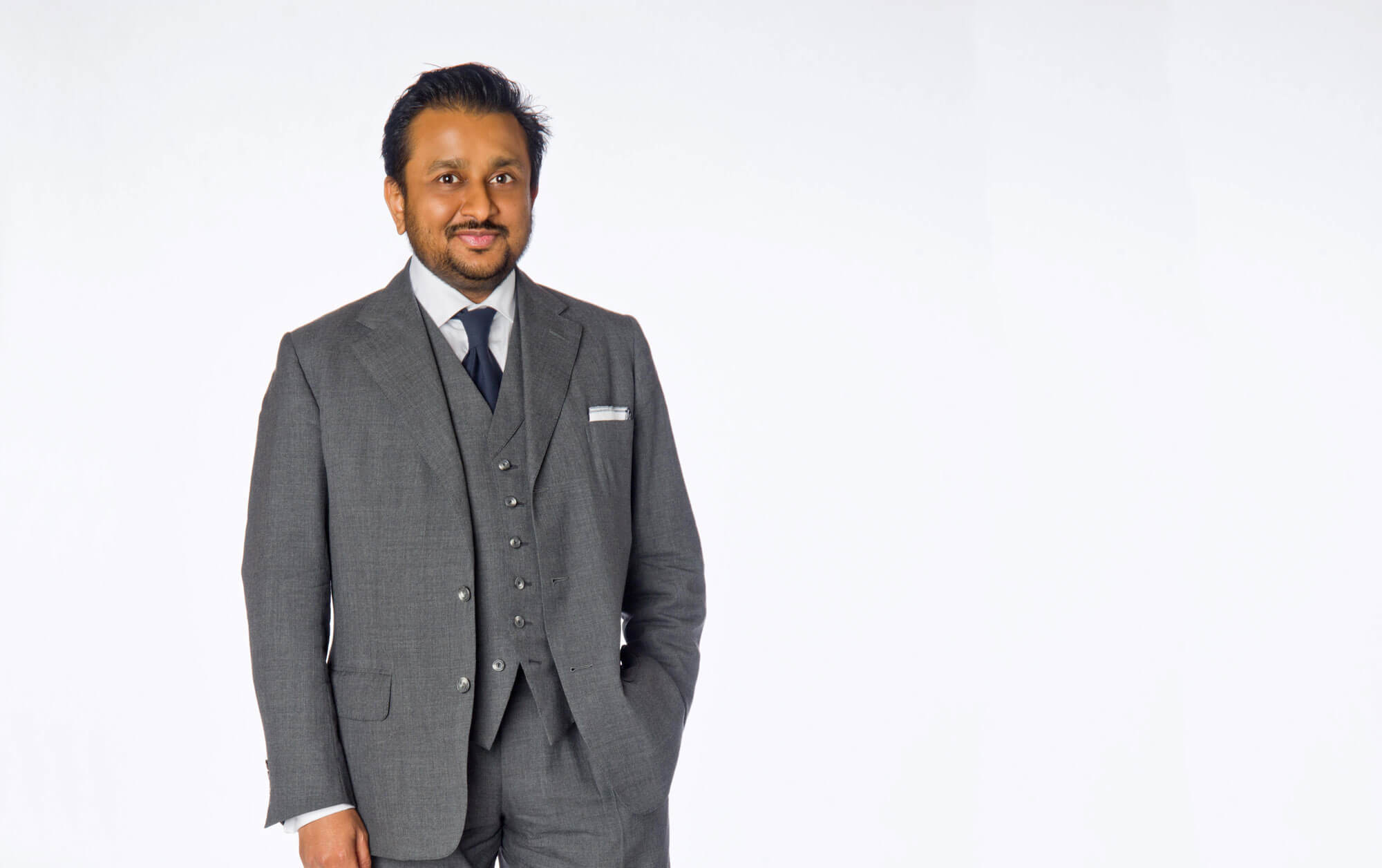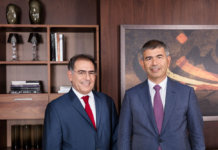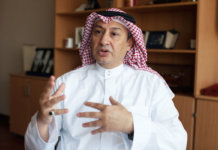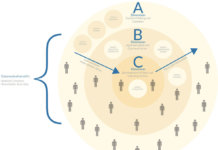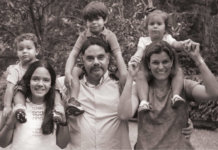Interview with Binoy Meghraj, Executive Vice Chairman of Meghraj Group
Nearly one hundred years ago, Meghji Pethraj Shah left his homeland of India for East Africa, where he founded a modest retailing business that over decades transformed into an influential international business network. M.P. Shah’s two sons, Vipin and Anant, grew their father’s legacy into what is today a leading financial advisory firm that provides investment banking, fiduciary services, infrastructure and real estate consulting. Now in its third generation, the Meghraj family business manages over $15 billion in client assets across Europe, Asia and Africa.
Tharawat spoke to third generation member and Executive Vice Chairman of Meghraj Group, Binoy Meghraj, about his family’s journey into finance and why a multicultural background is a competitive advantage.
When and why did you join the family business?
I think the right answer would be that I joined the moment I was born! I actually formally started working in the family firm 25 years ago at the age of 20. The business was founded by my grandfather and is currently overseen by my father, my uncle and myself. My sister and I form the third generation of our family business.
I can’t pinpoint any particular motive as to why I joined – it was an inevitability! I didn’t really consider anything else. There was always an assumption that it would happen. I guess as the eldest son of the eldest son, the odds were just sort of skewed that way!
The motive wasn’t explicit, but imbued. Our family believes in responsibility, and it is important to recognise this responsibility towards the family and the family business, and to take up that mantle.
How did your family business begin and transform into an established financial advisory firm?
My grandfather was born in India, moved to East Africa when he was 15, then back to India, finally moving to England for the education of his children. By that time, my grandfather had built many businesses and invested in numerous ventures. He had started in retail and wholesaling, and expanded into manufacturing and trading. My grandfather passed away at 59, when my father and uncle were still students. Before he passed away, he started focusing on philanthropy. The last ten years of his life were spent donating the money he had made and actively supporting causes in education and health care. He believed this was fundamental for society to progress. He sold most of his companies during those last years, and used the money to fund the family’s charities. When my father and uncle joined the business, they had some remaining capital, but they also had to build a new business.
After my grandfather’s death, my father and uncle actually found out, by chance, what he had envisaged as his next step. The family discovered his briefcase, inside of which there was an application to set up a bank in the UK. The family understood that he had intended to move the family business into finance. My father and uncle went forward with his plan, and several years later, after they completed their education, they started a bank in the UK, and built a business involved in various areas of finance. It is the second generation that really built Meghraj Group into the financial services business as we know it today. But it began with my grandfather’s reputation and legacy, and the contents of his briefcase.
Our values are consistent, no matter what business we are in. We believe that a key foundation of the success of our businesses is that we are a family business with strong ideals. Our clients and partners know that we value our relationships with them, and that we look at these relationships as being long-term, in many cases multi-generational. That perspective informs behaviour.
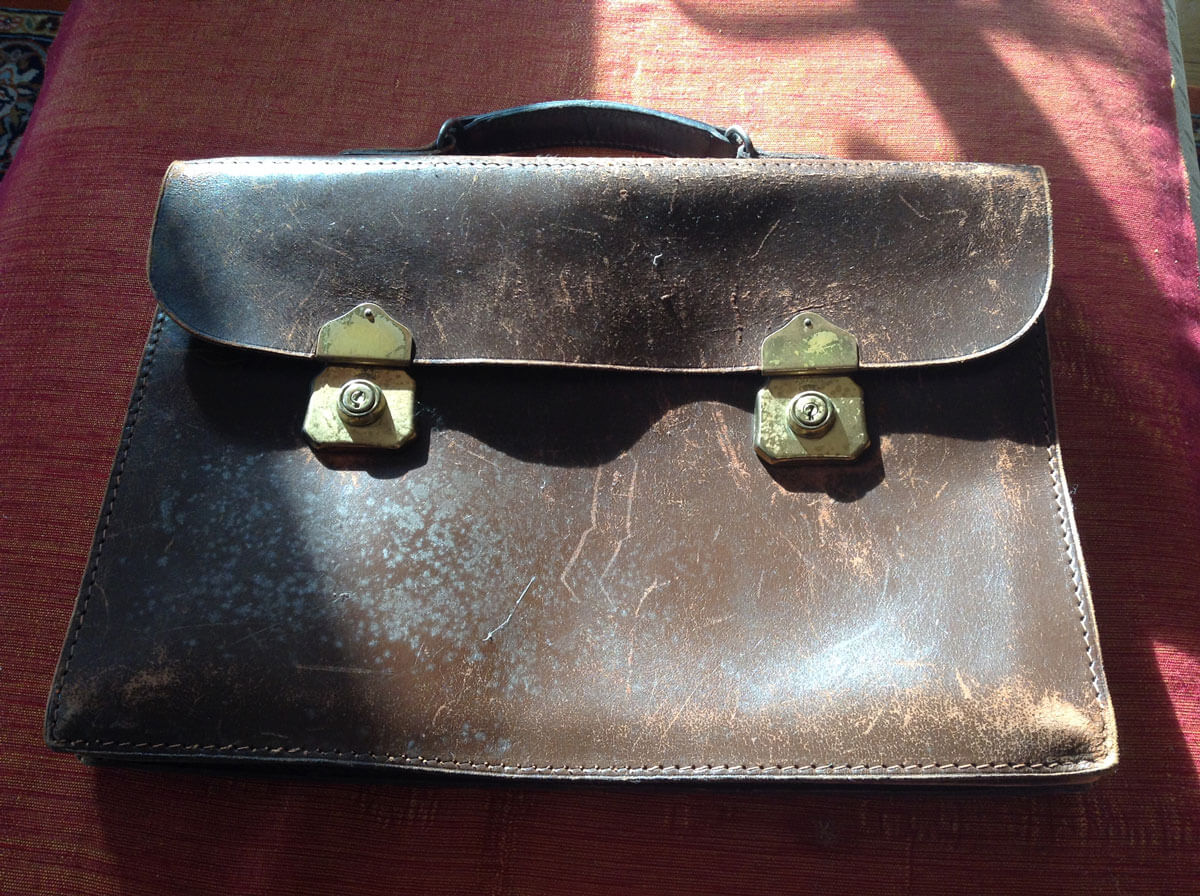
What were the greatest challenges you have faced?
I think that the biggest challenge has been, and will always be, living up to the legacy of the two generations of the family that started and built the business before me. I am very conscious of where our business came from. My grandfather moved from India to Kenya with nothing in his pocket. If he hadn’t made that move, we wouldn’t be where we are. Thereafter, if my father and uncle hadn’t built up the new finance business, again we wouldn’t be where we are.
I was very fortunate that my father and uncle were both running the business when I joined, and that they were able to guide and teach me. I know that many family businesses have issues transitioning from one generation to the next. In our case there has been no problem in succession. My father and uncle have created space for me to express myself and share my ideas early on, and we went through a fundamental restructuring of our management system to take my suggestions into account. They have gradually been giving me more authority and say, and this has happened smoothly.
One of the reasons this has been so smooth is that we respect each other highly. We all speak regularly and share thoughts and ideas, and seek advice from each other. We are also currently facing another typical family business problem: the number of family members is dwindling while the business is growing. We are therefore developing our structure to adapt.
How have you had the opportunity to personally grow within the family business?
In the early 1990s, our investment banking business started in India; it was this business which interested me the most, and I have been involved with it since then. One of my focus areas has been to grow this business. From the early 2000s we started to build our relationships and access in the Japanese market. I moved to Tokyo in 2003 and lived there for eight years. We saw a lot of business potential for Japanese companies to invest in India, which our investment banking business would advise on. However, building business and relationships in Japan was a slow process and demanded lots of perseverance. We were serious and put in the long-term effort because, as a family business, we are in it for the long haul. The business in Japan has been rather successful, and is now very important to us. We have also expanded more recently to the Middle East, East Africa and the UK, and I have been responsible for these initiatives. It has been a great learning opportunity, and is exciting in terms of being able to work with clients from different backgrounds and with very different cultures.
[ms-protect-content id=”4069,4129″]
Where are you headed next?
Now our interests are again focused on Kenya. We left East Africa in the 1950s and are back. We feel welcome there and our businesses are growing fast. We have many strong, long-standing relationships, and it feels like going home!
What are the opportunities and challenges you see in East Africa?
The landscape is currently very interesting. The population and demographics are promising and the middle class is growing. There is a major change in aspirations. The shifts happening at the moment mean change. It is the right time to expand in the region because the opportunities are great. It reminds me very much of the transformation India went through from the late 1990s. Competition for businesses is increasing as foreign players enter the market. There is a need for capital, and good opportunities for partnership between local and overseas businesses. Many businesses in East Africa are also currently facing succession issues. Most families want to keep ownership within the family, but to ensure orderly succession planning, we see a growing need for trust structures.
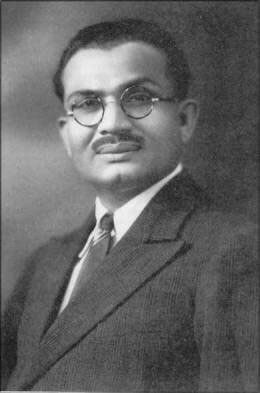
Your family’s history and success is based on a multicultural heritage. How does a business truly go global and address the concerns of clients in vastly different countries?
We have to be multicultural to conduct our business properly, and I feel that we are. I feel at home in the places we do business, and we are able to work with clients in our different markets in ways which are consistent with their cultures. We try not to build our businesses in different countries with any overriding cultural dominance, but rather with a consistency to our value system. We have to understand clients and be able to engage and interact with them respectfully and on their own terms. An important part of our work is to build bridges between clients of different cultures, and we would not be able to do that if we did not understand those cultures.
When working globally you have to be truly passionate about what you do because it is very demanding. In terms of decision-making across countries, we have strong local teams and managements that are responsible for the performance of their businesses. Family members work closely with each of the businesses to provide support and input, help with relationships, and increasingly importantly to help with coordination among the different businesses. Getting the right people on board is crucial for expansion. No one can operate in isolation.
Inward relationships are as important as outward ones. As a family, we are in constant communication. I talk to my father and uncle all the time. We exchange ideas and opinions, which works really well for us. It is comfortable and supportive. Our expansion to Japan was a clear family business decision. It was a difficult market to enter and it took really long-term thinking to be able to take this risk. It definitely paid off.
What is the end game?
What are we doing it all for? I have to come full circle back to my grandfather’s briefcase. He was a man devoted to doing good, and to giving back to society. He was an early proponent of what is now referred to as venture philanthropy. Our family went into finance in order to continue the lessons he taught us, and to take on our responsibilities to contribute to society. The end game for us is philanthropy, and the desire to make a meaningful contribution is what ultimately drives us.
Tharawat Magazine, Issue 28, 2015
[/ms-protect-content]


